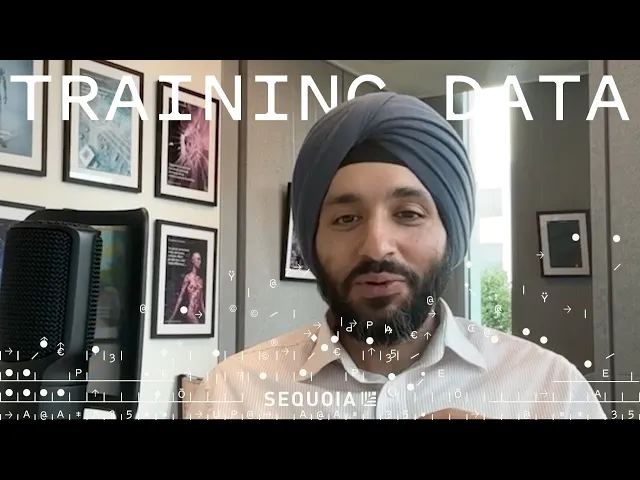DeepMind’s Pushmeet Kohli on AI’s Scientific Revolution

AI reshapes scientific discovery with Pushmeet Kohli
DeepMind's head of AI for Science, Pushmeet Kohli, has sparked a revolution in how we understand scientific discovery. In a recent interview, Kohli outlines how artificial intelligence is fundamentally changing scientific research across disciplines—from protein folding to material science. This transformation isn't just accelerating existing research methods; it's creating entirely new approaches to solving humanity's most complex scientific challenges.
Key insights from Kohli's perspective:
-
AI as scientific collaborator: AI systems like AlphaFold aren't just tools but active participants in scientific discovery, capable of generating novel hypotheses and approaches humans might miss.
-
Breaking disciplinary boundaries: The most exciting breakthroughs happen at the intersection of AI and multiple scientific domains, creating opportunities for cross-pollination that traditional research structures often miss.
-
Democratizing scientific progress: AI models that condense specialized knowledge make scientific exploration more accessible to researchers from diverse backgrounds, potentially accelerating discovery rates.
-
Human-AI scientific symbiosis: Rather than replacing scientists, AI augments human creativity and intuition, handling computational complexity while humans guide investigation with contextual understanding.
The emergence of a new scientific method
Perhaps Kohli's most profound observation is that AI represents an evolution in the scientific method itself. For centuries, the approach of hypothesis formation, testing, and refinement has been relatively stable. Now, AI introduces what might be considered a fourth paradigm of scientific discovery—where models can analyze vast datasets, identify patterns beyond human perception, and generate novel hypotheses at unprecedented scale.
This matters immensely in our current context. Many of humanity's most pressing challenges—climate change, disease, sustainable energy—require processing information at scales and complexities that overwhelm traditional approaches. As Kohli notes, protein folding was considered a computational problem that might take centuries to solve, yet DeepMind's AlphaFold effectively solved it in just a few years. This suggests similar breakthroughs might be possible across other seemingly intractable scientific domains.
Beyond the interview: real-world implications
While Kohli presents compelling examples from DeepMind's portfolio, other groundbreaking applications deserve mention. Consider Climate TRACE, which combines AI with satellite imagery to track global greenhouse gas
Recent Videos
How To Earn MONEY With Images (No Bullsh*t)
Smart earnings from your image collection In today's digital economy, passive income streams have become increasingly accessible to creators with various skill sets. A recent YouTube video cuts through the hype to explore legitimate ways photographers, designers, and even casual smartphone users can monetize their image collections. The strategies outlined don't rely on unrealistic promises or complicated schemes—instead, they focus on established marketplaces with proven revenue potential for image creators. Key Points Stock photography platforms like Shutterstock, Adobe Stock, and Getty Images remain viable income sources when you understand their specific requirements and optimize your submissions accordingly. Specialized marketplaces focusing...
Oct 3, 2025New SHAPE SHIFTING AI Robot Is Freaking People Out
Liquid robots will change everything In the quiet labs of Carnegie Mellon University, scientists have created something that feels plucked from science fiction—a magnetic slime robot that can transform between liquid and solid states, slipping through tight spaces before reassembling on the other side. This technology, showcased in a recent YouTube video, represents a significant leap beyond traditional robotics into a realm where machines mimic not just animal movements, but their fundamental physical properties. While the internet might be buzzing with dystopian concerns about "shape-shifting terminators," the reality offers far more promising applications that could revolutionize medicine, rescue operations, and...
Oct 3, 2025How To Do Homeless AI Tiktok Trend (Tiktok Homeless AI Tutorial)
AI homeless trend raises ethical concerns In an era where social media trends evolve faster than we can comprehend them, TikTok's "homeless AI" trend has sparked both creative engagement and serious ethical questions. The trend, which involves using AI to transform ordinary photos into images depicting homelessness, has rapidly gained traction across the platform, with creators eagerly jumping on board to showcase their digital transformations. While the technical process is relatively straightforward, the implications of digitally "becoming homeless" for entertainment deserve careful consideration. The video tutorial provides a step-by-step guide on creating these AI-generated images, explaining how users can transform...
